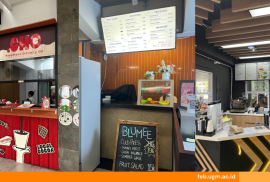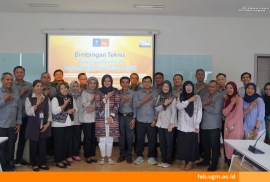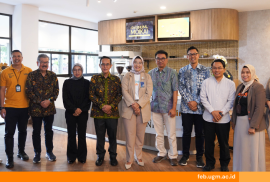The synergy between halal and Waqf has become increasingly important in addressing the challenges of the modern economy. Roy Renwarin, Development Director of the Indonesian Waqf Education Foundation, stated that the Islamic economy has great potential to become an inclusive, sustainable, fair, and riba-free system.
Speaking at the WAKAFPRENEUR “Goes to Campus” session entitled “Implementation of Halal-Based Waqf” on Friday (22/11/2024), Roy explained how the application of halal principles, which are now required by law, can support the financing of micro-enterprises and create a more sustainable economy.
He explained that the development of the Halal industry is now mandated by law. All products, goods, and services, as well as storage and delivery processes, must be halal-certified and conducted in a halal manner. “Halal is inclusive. Even non-Muslims can practice waqf,” Roy said, emphasizing the importance of inclusivity in the Islamic economic system.
Roy explained that halal is about religious compliance and the principles of truth, justice, and welfare. Halal applies to products, business capital, raw materials, and business processes.
“The meaning of Halal is a holistic and comprehensive concept. Even in business, halal must cover business capital, raw materials, and the business process itself,” he added.
Roy highlighted the importance of waqf as an instrument that is more than just charity; it is a legal act regulated by law. Waqf can now be part of a business tool that provides economic benefits and is channeled back for the benefit of society.
Roy also criticized conventional financing practices in Indonesia, which tend to make it difficult for micro-enterprises. According to him, waqf offers a more inclusive and riba-free solution, allowing for fairer and more sustainable financing. “With this kind of capital model, how can SMEs move up?” he asked, referring to the difficulties many small businesses face in accessing capital.
He continued in the face of this challenge, saying that waqf offers an inclusive solution. Micro clients can practice waqf with a halal process and avoid riba elements. He believes that waqf has excellent potential to support micro-enterprise financing. Unlike conventional financing, which requires collateral, waqf offers a more inclusive approach.
Roy revealed that Islamic banks have the advantage of facilitating loan restructuring by providing business support, offering capital installments with matching capabilities, and careful Hasan (interest-free capital injection to accelerate business recovery). This concept aligns with Islamic principles, which call for leniency towards customers struggling to repay their debts.
“Waqf provides much more equitable and sustainable benefits,” Roy explained.
Roy believes the Islamic economy can become a holistic, inclusive, and sustainable societal solution through the synergy between the halal and waqf concepts. Waqf offers a better and fairer solution for financing micro-enterprises, providing an alternative that is more inclusive and free from harmful practices.
Reporter: Shofi Hawa Anjani
Editor: Kurnia Ekaptiningrum
Sustainable Development Goals








